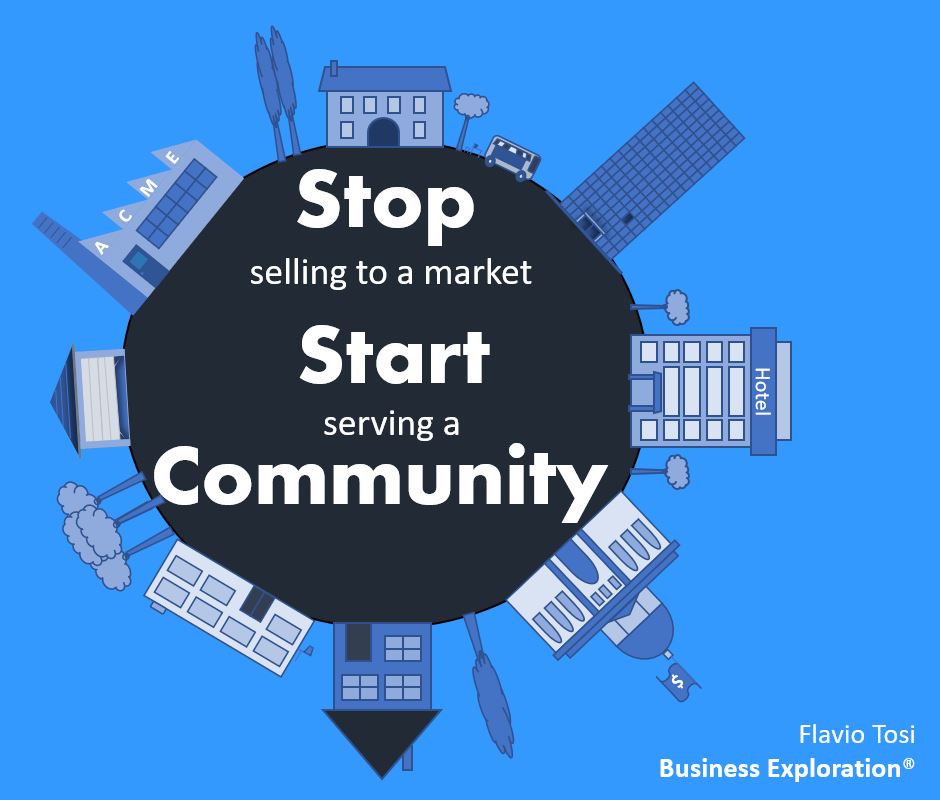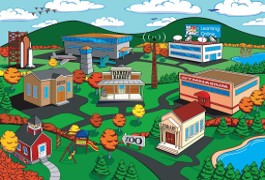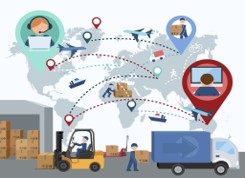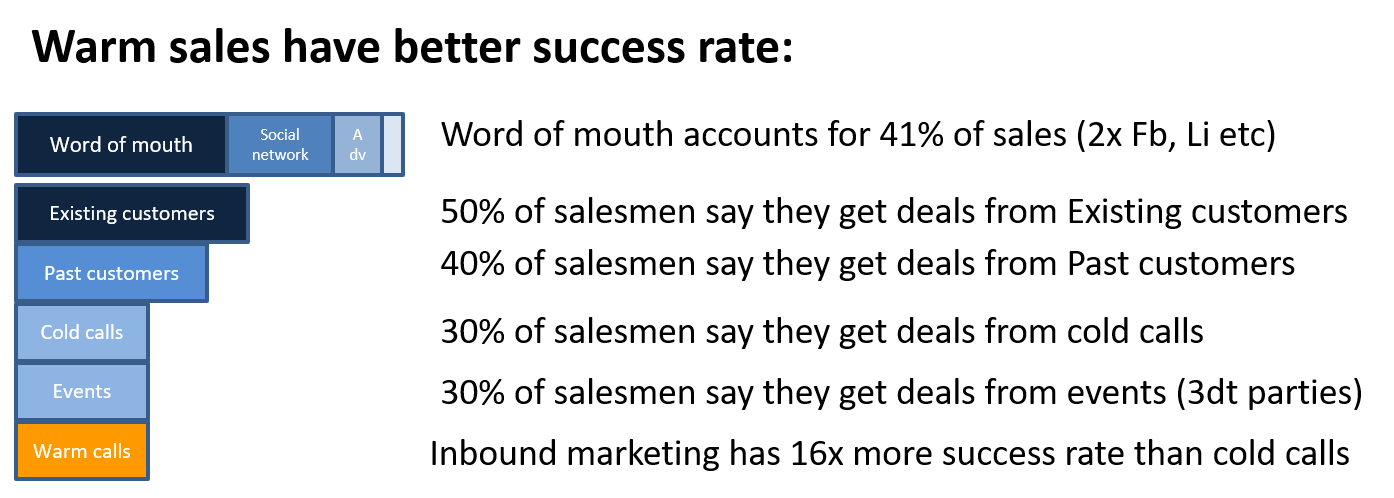Start selling in a Community.
The way they teach you Prospecting
it's unapplicable.
(free booklet for students)


Why do we sell?
I mean: which is the mechanism of selling, how this could happen?
Whoever tried to design a Prospecting Campaign, had to face this question.
I searched an answer among various scholars and practiotioners: from Racknam to Cialdini, and more. I got a lot of nice ideas about what to do when you deal with a Customer, but very few original frameworks about how to be able to get in contact with a Customer.
Part of this lack of ideas is due to the fact that most of the Sales Best practices are written in USA. And the rules applicable there are almost of no use elsewhere.
USA are big...while most of my customers are in small niches.
USA are homogeneus... in Italy, e.g. there are as many cultures as cities.
All this standardization make possible for the salesman to use a brute force approach:
Just call a list of prospects untill you get an order.
This approach makes sense only there. It is the application of the law of big numbers and of statistically get a percentage of success. It is something that Marketing embodies and companies like Facebook have exploited to the maximum extent with their "autoprofiling" - if not "bambolizing" - of the prospects.
When you are in the "real" world: the one shaped by tousand of years of history, this approach fails. Or better: you can apply it but you do not understand why it works, when it works.
I needed something different:
I started to think that in reality you make business within a Community.
So the first question you have to make to yourself is "which Community ? "



This is the meanining of "business is relationship". You make business because people trust you and they trust you because they know you "since ever":
even before you were born, they knew your parents, your family...
Which is your Community? The one that is defined by people trusting you?
This Community is the first one you shall serve. Then you can expand to new communities.
If you think that you do business within a Community, it becomes immediatelly clear that you exist in order to serve that community.
The next questions then are:
Once you understand what is your Role in that community, then you want to be recognized for that role.
The two cases are definitively different:
The first is solved by "content marketing": Google is exploiting this to the max, forcing everyone who wants to solve a "known" problem to fight in a red ocean where the winner is the one with the best cost advantage and the largest resources.
The second is where most of the innovators and SMBs play. It brings the huge advantage of being "first on the Customer" (a local blue ocean) and therefore position the supplier as the expert of a problem. The second should be preferred whenever you are playing in a niche.
When you play the second case, your goal is to re-write Customer's agenda, shifting the problem you just helped to discover, as first of the laundry list.
The problem with the second case is that this means you have to get in contact with the customer, and the way you do it affects the success rate of your sales.

If you give a look at the above picture you see that getting in contact "in person" is way better than any other way to contact the Customer.
You can:
Cold calls have a success rate that is some order of magnitude lower than warm calls.
If a cold call has a success rate of 1 the same warm call has a success rate 10 or 100 times better. ( this is an extrapolation from different sources so if you have exact numbers I will be happy to insert them )
You call a "Warm Customer" when you call someone that has been exposed to your "story". Someone that has been sold you, your role into the community, your level of trust into that community etc.
This is called "referral".
Referrals are that "magic" that make sales happen.
The problem with referrals is that most of them are brought to you by existing or past customers. That is not the ideal condition when you sell innovation ( something that no customer has tested before ) or you are a startup ( and you do not have a customer )
A Peer is someone that belongs to that community and that can trust you. Thinking yourself as serving a community helps a lot to identify the Peers you need. For example you may want to identify:
These Peers must be "loaded" with the proper ammunitions:
So that they can Referr you whenever they understand you can be of help.
Once you get a referral, do not forget to thank the Referent with a small gift.
I hope that this way to see "Prospecting" may help.
